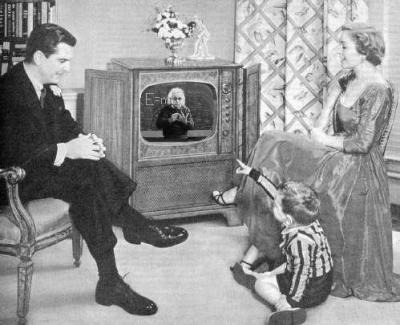
In lieu of Avalanche, the new Sufjan Stevens album of outtakes and extras from Illinois, I thought it about time to take another look at Seven Swans, another Sufjan album sometimes described as a B-side record. I've never quite understood my roommate's recalcitrance to call it a "real" album, and here are the reasons why.
For starters, Seven Swans only sounds similar to Michigan in that it's a Sufjan album, written and recorded in the early days of his career (or so we're hoping). So while Illinois and Avalanche could be called companion albums, Seven Swans and Michigan cannot. Granted, Michigan and Seven Swans are both melancholic albums when compared to Illinois, yet the mood of Seven Swans springs forth more-so from the sparse and limited arrangements rather than from the lyrical content. The album stands apart from Michigan in its rejection of the multi-layered sonic approach utilized on Sufjan's state-themed albums. Not until "Size Too Small" do we hear a song that would sound very much at home on Michigan.
Yet it's the lyrical content what really sets Seven Swans apart from Michigan. While there are some fairly straightforward songs in the mix (take the lyrics of "Abraham," for instance: Abraham, worth a righteous one /Take up on the wood /put it on your son), many of these songs simply don't make a whole lot of sense. The songs of Michigan are intensely personal -- whether about Sufjan's home, his own experiences, and the experiences of his song subjects -- or grounded in historical geography. Seven Swans takes an entirely different approach. As a writer, Sufjan is stretching his wings outside his old home state and really reaching for something different, something new. At times he succeeds, as in "In The Devil's Territory":
Be still and know your sign.
The beast will arrive in time.
We stayed a long, long time.
We stayed a long, long time.
To see you, to beat you,
to see you, at last.
It's hard to tell who the "you" in the song is. And it's impossible to tell who the narrator of the song is (we can't assume it's Sufjan simply because he's the one doing the singing). Yet even amidst the confusion of the song, the "you" in the song can be interpreted as a romantic "you." And despite references to "the beast," it's still Sufjan's most pop-oriented song to date.
Other songs are more difficult to measure. While "Size Too Small" is almost as achingly gorgeous as "Romulus" (from Michigan), its meandering lyrics are a bit of a putoff.
Everything rises, going at it all.
All the surprises in a size too small.
And what if I told you
I was still in love with this?
Would you surprise us
in a size for all of me?
I still know you.
And I still like you, the best man.
Yet other songs are head-scratchers in an absolutely wonderful way. "We Won't Need Legs To Stand" is either about the Eurcharist, the Eschaton, the prayer of the High Priest, or maybe even the cry of a paraplegic prisoner:
So faithful, so few,
so pardon, and done.
And when we receive,
we give a change at last.
And when we are dead,
we all have wings.
We won't need legs to stand.
And when we receive.
to see a change at last.
Whichever it is, it works.
It's not fair to ignore this and call Seven Swans a series of Michigan casts-off simply because of two nods towards everybody's favorite pleasant peninsula (Lake Michigan and Detroit, in separate songs). It's Seven Swans that gets Sufjan pegged as a freak-folkster. And the songwriting, while perhaps his most abrasively "Christian" material, scares me like the others can't. Take the title track, "Seven Swans":
We saw the dragon move down.
My father burned into coal.
My mother saw it from far.
She took her purse to the bed.
I saw a sign in the sky:
Seven horns, seven horns, seven horns.
I heard a voice in my mind:
I am Lord, I am Lord, I am Lord.
He said: I am Lord, I am Lord, I am Lord.
He said: I am Lord, I am Lord, I am Lord.
When you finally get to the refrain at the end -- He will take you/If you run/He will chase you-- it's difficult to tell if the taking and the chasing are romantic, or the most terrifying thing in the world. Being chased by God sounds like something from the Song of Solomon, but in the context of the lyrics and the mood of the music, it feels like it may be just as terrible as being burned by the dragon. There's no doubt that it finds inspiration in the fantastic imagery of the Book of Revelation, and yet it really doesn't bring much eschatological comfort considering it doesn't end like John's Apocalypse does. Mostly, it seems to just end in judgment and fire. Period. And that's no good. In fact, if "The Transfiguration" didn't immediately follow "Sevens Swans," I would probably be too afraid to dare another listen.
All these instances, at least for me, are what really allow Seven Swans to stand on its own two feet. Lyrically and sonically, it's a separate experiment from Sufjan's 50-State-albums. One only need to take a look at the track listing for Avalanche to realize that this is an album of outtakes -- songs that just didn't make the cut. An in depth look at Seven Swans, however, shows that it's an entirely different beast of an album. One of very different sounds, shapes and textures. One that is a pop record all its own.
And one that I'm oh-so-grateful to have and to hold and to hear.
Saturday, July 15, 2006
Seven Swans, Take Two
Posted by
jonny
at
6:06 PM
![]()
Subscribe to:
Post Comments (Atom)




No comments:
Post a Comment